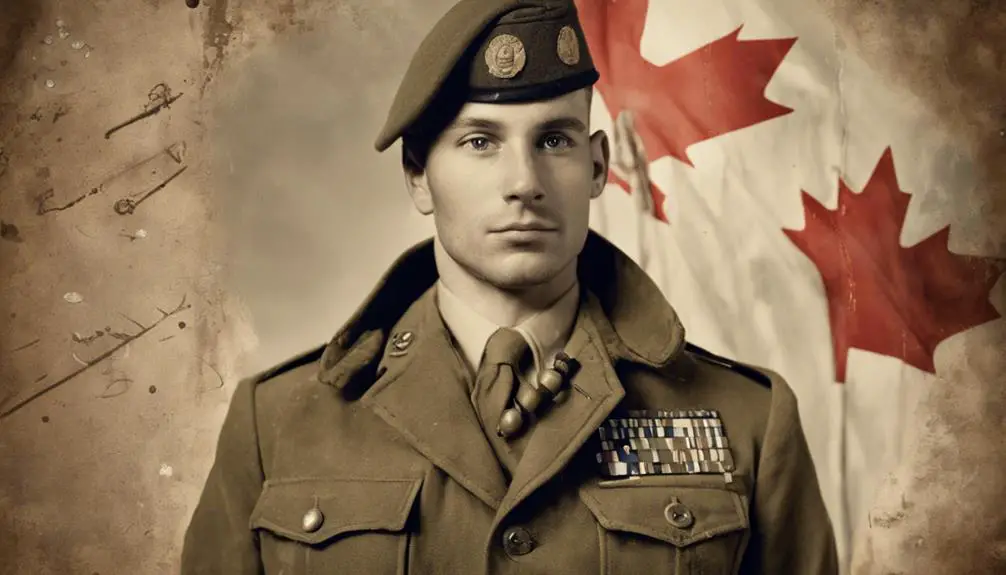You're about to explore the fascinating world of Canadian military slang, shaped by its bilingual heritage and regional dialects. This unique language has evolved over time, influenced by soldiers' diverse backgrounds and the need for secrecy and speed in communication. You'll discover how acronyms and abbreviations play an essential role in military speak, and how colloquialisms reflect the emotions and experiences of soldiers in combat. From 'scran' to 'chow,' you'll uncover the slang terms that are an integral part of daily life on base, and how regional variations add to the richness of this cultural phenomenon. What more will you uncover as you explore this complex linguistic landscape?
Origins of Military Slang
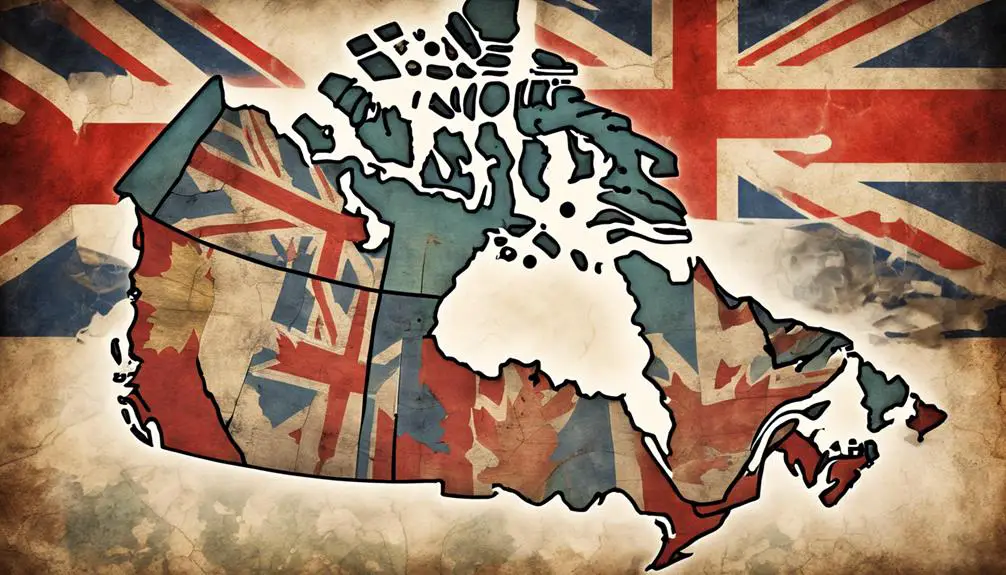
Since the earliest days of military service, soldiers have developed a unique language that sets them apart from civilians, with Canadian military slang being no exception, tracing its roots back to the country's early military history.
As you explore the origins of military slang, you'll discover that it's deeply rooted in the historical context of Canada's military. The language adaptation that occurred during World War I, for instance, saw the emergence of trench slang, which was later adopted by Canadian soldiers.
This adaptation was largely influenced by the cultural diversity of soldiers, who brought with them their own dialects and colloquialisms. The need for secrecy and speed in communication also played a significant role in shaping Canadian military slang.
You'll notice that many slang terms were created to convey complex information quickly and discreetly, often using abbreviations and acronyms. Understanding the historical context of Canadian military slang is important in appreciating its evolution and significance.
As you explore further, you'll uncover the fascinating story of how language adaptation has contributed to the unique identity of Canadian soldiers.
Bilingual Roots of Slang
Exploring the bilingual roots of Canadian military slang, you'll find that the country's linguistic duality has greatly influenced the development of this unique language. As a bilingual nation, Canada's military slang has borrowed from both English and French, creating a language blend that's distinct from its American and British counterparts.
The French influence is particularly evident in the use of French-derived terms, such as 'tabarnouche' (an expression of surprise or excitement) and 'two-four' (a case of 24 beers).
This language blend has resulted in a slang that's both familiar and distinct from its international counterparts. You'll notice that Canadian military slang often combines English and French words, creating a unique vocabulary that's reflective of the country's bilingual heritage.
For instance, 'dépanneur' (a corner store) is used to describe a makeshift store on a military base, while 'chinook' (a warm winter wind) is used to describe a warm, dry wind that blows through the Canadian prairies.
As you explore further into the world of Canadian military slang, you'll discover a rich tapestry of linguistic influences that reflect the country's complex history and cultural identity.
Acronyms in Military Speak
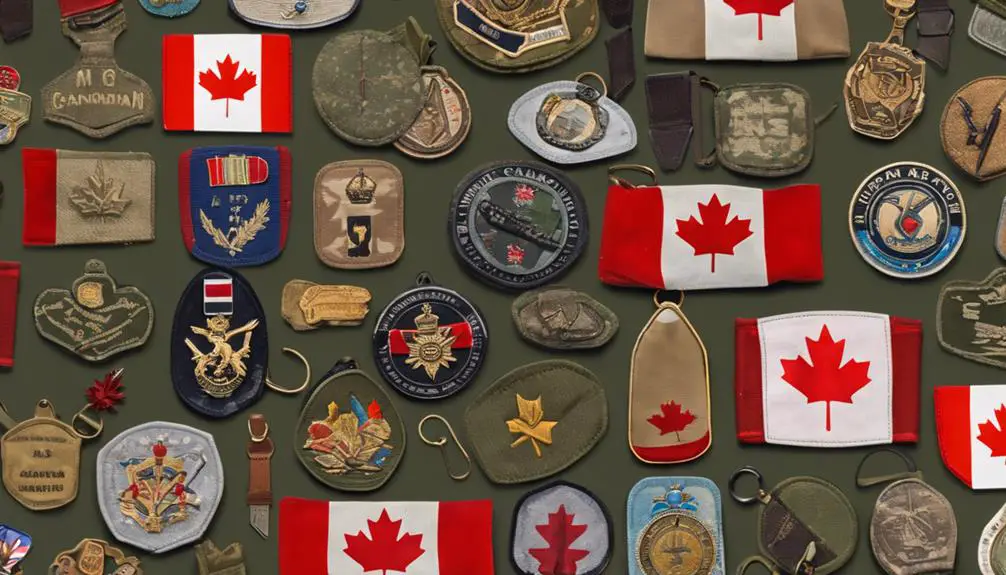
As you explore the nuances of Canadian military slang, you'll encounter a plethora of acronyms that have become an integral part of military communication. These abbreviations serve as a shorthand for complex concepts, allowing personnel to convey critical information quickly and efficiently.
One common example is the use of MILSPEC codes, which denote specific military standards for equipment and materials. For instance, MIL-STD-810G outlines the testing procedures for environmental engineering considerations.
In addition to MILSPEC codes, Abbreviated Ops are also prevalent in military communication. These shortened phrases enable rapid transmission of operational details, such as SITREP (situation report) or OPORD (operation order). By using these acronyms, military personnel can convey crucial information without sacrificing clarity or accuracy.
As you delve deeper into Canadian military slang, understanding these acronyms will become essential for effective communication and situational awareness. By recognizing and utilizing these abbreviations, you'll better comprehend the nuances of military language and improve your ability to operate within this unique cultural context.
Colloquialisms of the Trenches
You'll frequently encounter colloquialisms in military slang that have evolved from the trenches, where soldiers have developed unique phrases to describe everyday experiences and emotions. These colloquialisms, known as Trench Talk, have become an integral part of military culture. They serve as a coping mechanism, allowing soldiers to process the harsh realities of war.
For instance, the phrase 'hurry up and wait' reflects the frustration of prolonged deployments and the slow pace of military operations. Similarly, 'war wisdom' refers to the hard-earned knowledge gained through combat experience. It's a phrase that acknowledges the importance of learning from past mistakes and adapting to new situations.
In the trenches, soldiers have developed a distinct language to describe their surroundings and emotions. Phrases like 'blue on blue' describe friendly fire, while 'fog of war' refers to the confusion and uncertainty of combat. These colloquialisms provide a glimpse into the psyche of soldiers, revealing their fears, frustrations, and camaraderie.
Slang of the Mess Hall
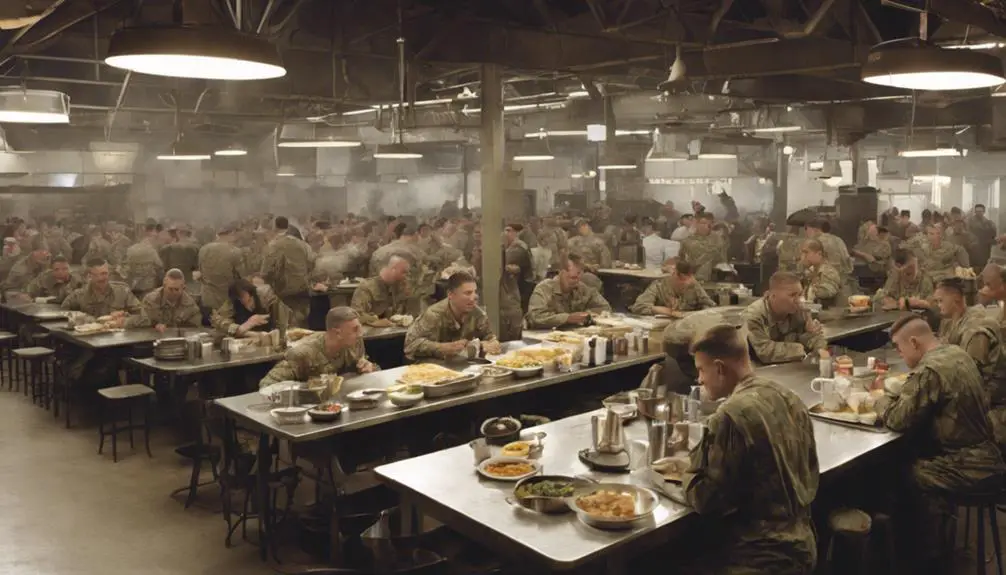
Three meals a day fuel the military machine, and the slang of the mess hall reflects the camaraderie and humor that develops around food. You'll often hear kitchen staff and soldiers tossing around terms like 'scran' for food, 'chow' for mealtime, and 'mess' for the dining area itself. This kitchen lingo is a staple of military culture, and you'll find it's an integral part of daily life on base.
When you're in the mess, you might be served 'gaggle' – a term for a large quantity of food, often used to describe a hearty breakfast. If you're lucky, you might even score some ' Combat Rations' – also known as 'Meals, Ready-to-Eat' or MREs – which are pre-packaged meals designed for soldiers in the field. And if you're feeling particularly hungry, you might request a 'double ration' – an extra helping of mess food to fuel your day.
The slang of the mess hall is a unique aspect of military culture, and it's a reflection of the camaraderie and banter that develops between soldiers and kitchen staff. By understanding these terms, you'll be better equipped to navigate the mess hall and connect with your fellow soldiers over a plate of 'scran'.
Ranks and Roles in Slang
In the Canadian military, ranks and roles are often shrouded in slang, with soldiers and officers alike relying on colloquialisms to quickly convey authority, responsibility, and expertise. As you navigate the complex hierarchy of the Canadian military, you'll encounter a range of slang terms that can be both confusing and fascinating.
To better understand the nuances of military communication, it's essential to familiarize yourself with the slang surrounding ranks and roles. Here are a few examples:
- Rank Nicknames: Officers are often referred to by their rank nicknames, such as 'Two-IC' for a Second Lieutenant or 'RSM' for a Regimental Sergeant Major.
- Slang Titles: Certain roles have colloquial titles, like 'Gunny' for a Gunnery Sergeant or 'Padre' for a Chaplain.
- Abbreviated Ranks: Ranks are often shortened for brevity, such as 'Cpl' for Corporal or 'Lt' for Lieutenant.
- Informal Titles: Some roles have informal titles, like 'Top' for a Sergeant Major or 'Doc' for a Medical Officer.
Regional Slang Variations
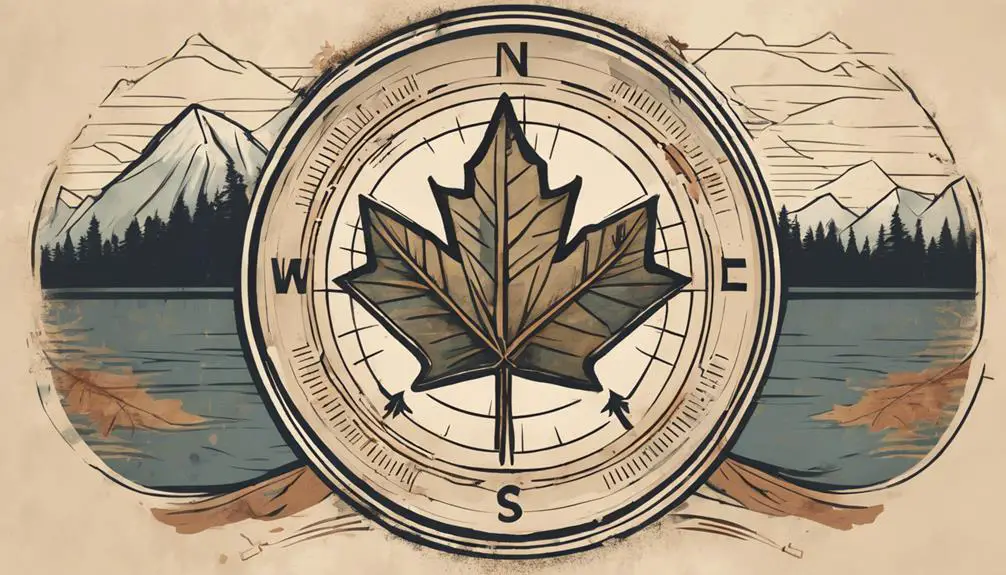
Your familiarity with Canadian military slang extends beyond ranks and roles, as regional variations of slang emerge, influenced by the diverse cultural and linguistic backgrounds of the country's five regions.
As you explore further, you'll notice distinct dialects and colloquialisms that reflect the unique characteristics of each region. For instance, in the Maritime provinces, you'll encounter nautical-inspired slang, with terms like 'anchors aweigh' (meaning 'let's go') and 'batten down the hatches' (meaning 'get ready'). These Maritime dialects often blend French and English influences, resulting in a unique flavor of military slang.
In contrast, the Prairie provinces bring their own brand of colloquialisms, often rooted in agriculture and ranching. You might hear phrases like 'getting your boots dirty' (meaning 'getting to work') or 'rustling up' (meaning 'gathering').
These regional variations not only add flavor to Canadian military slang but also reflect the country's rich cultural diversity. As you investigate these regional dialects, you'll gain a deeper understanding of the complex tapestry that's Canadian military slang.
Evolution of Military Lingo
As you've seen how regional variations shape Canadian military slang, you're likely wondering how these dialects have evolved over time, and that's exactly what's driven the development of military lingo.
The evolution of military slang is a dynamic process, influenced by cultural and linguistic factors.
- Cultural influence: Military personnel from diverse backgrounds bring their own cultural nuances, idioms, and expressions, which blend with existing military slang, creating a unique dialect.
- Language adaptation: Military jargon adapts to new technologies, tactics, and operational environments, giving rise to new terminology and abbreviations.
- Globalization and coalition operations: International collaborations and joint operations expose military personnel to different languages and dialects, influencing the development of military slang.
- Generational differences: Each generation of military personnel brings its own linguistic preferences, shaped by their upbringing, education, and cultural context, which gradually modify military slang.
The evolution of military lingo is a continuous process, shaped by the complex interplay of cultural, linguistic, and operational factors. Understanding these influences helps you appreciate the rich tapestry of Canadian military slang.
Frequently Asked Questions
Is Canadian Military Slang Similar to American Military Slang?
When you explore military slang, you'll find that cross-border similarities exist between Canadian and American military slang. This is due to linguistic borrowing, where terms are adopted and adapted across borders.
You'll notice that many slang terms are identical or have slight variations, reflecting the close cultural and historical ties between the two countries.
Can Civilians Use Military Slang in Informal Conversations?
As you venture into the uncharted territory of military slang, you'll find yourself standing at the crossroads of cultural appropriation and language evolution.
Can civilians use military slang in informal conversations? You'll need to weigh the risks of cultural insensitivity against the benefits of linguistic diversity.
As you navigate this complex landscape, consider the fine line between borrowing and appropriation.
Will you choose to adopt military slang, or will you opt for linguistic innovation, paving the way for a new era of language evolution?
Are There Any Military Slang Words Specific to Women in the Military?
As you explore the world of military slang, you might wonder if there are specific terms used by female comrades. Surprisingly, you'll find that Sisterhood Jargon, a term used to describe the unique language and camaraderie shared among female service members, is a significant aspect of military culture.
While not exclusive to women, certain phrases and acronyms have emerged to reflect their experiences and bonds within the military community.
Do Military Slang Terms Change During Times of War?
As you explore the world of military slang, you're likely to find that language adapts like a chameleon in the heat of war. During times of conflict, soldiers often create new terms to cope with the psychological toll of war fatigue.
This phenomenon is rooted in conflict linguistics, where language evolves to express the unique experiences and emotions of those on the front lines. You'll find that military slang terms do change during war, as soldiers aim to communicate effectively amidst the chaos.
Are There Any Military Slang Terms That Are No Longer Used?
As you explore the domain of military slang, you'll discover that many terms have fallen out of use over time.
You'll come across obsolete phrases and forgotten terminology that were once commonplace.
These phrases, once integral to military communication, have been replaced by new lingo, rendering them obsolete.
You'll find that language evolution, changing technologies, and shifting cultural norms have all contributed to the decline of certain slang terms, leaving them relegated to the dusty shelves of military history.
Conclusion
So, you've made it through the trenches of Canadian military slang, eh? Congrats, buddy! Now you're fluent in the lingo of the True North's bravest.
But don't get too cocky, rookie – slang's a moving target, and what's hip today is has-been tomorrow. Stay frosty, and remember: in the mess hall of military speak, only the adaptable survive.
Keep your ears open and your wits about you, or you'll be lost in translation, pronto.

